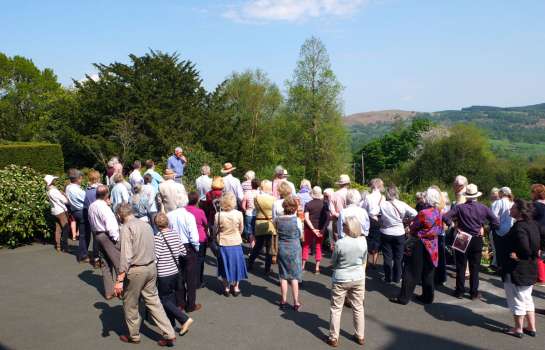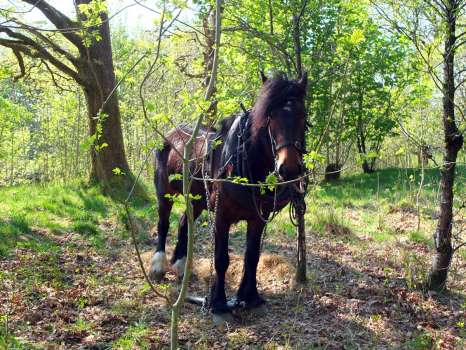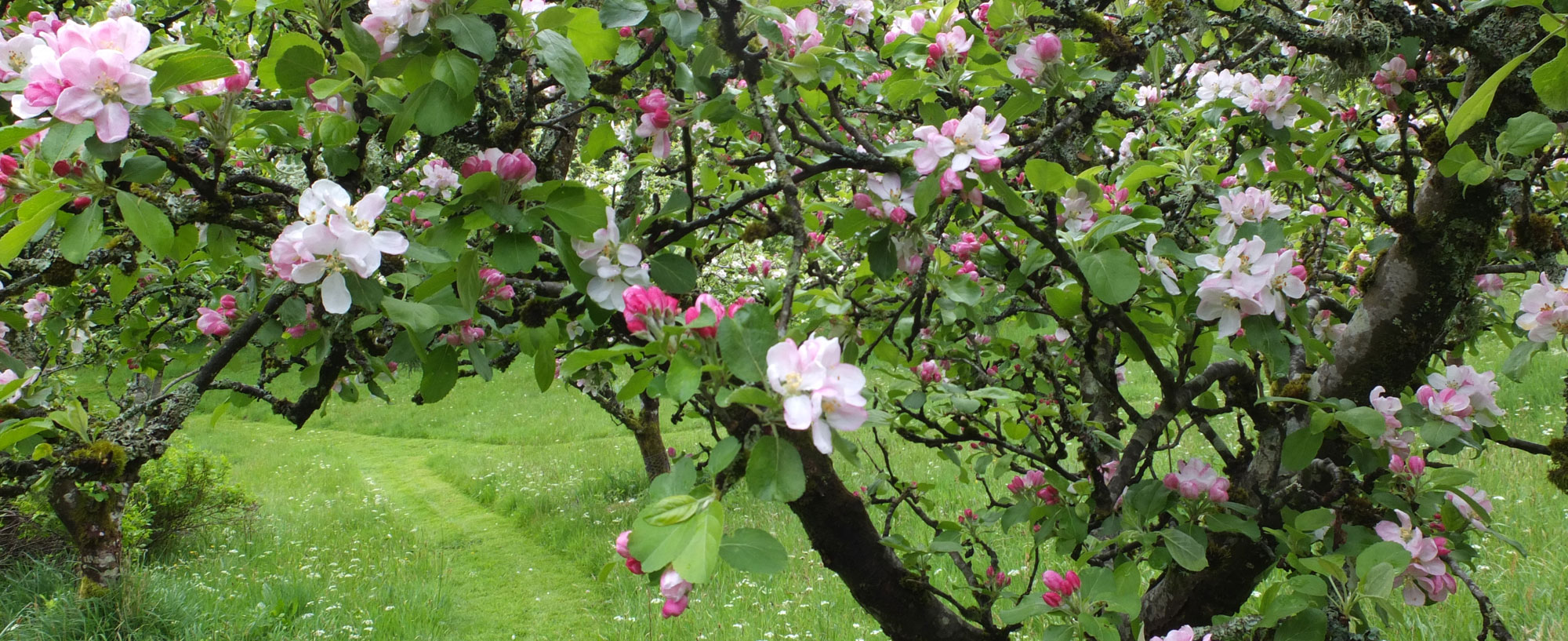
It has been a week of visits to the gardens and woodlands of Yewfield. Last Thursday the 12th, the Cumbria Gardens Trust, a charity celebrating the diversity of gardens in Cumbria, both historic and modern, paid us a visit. We were extremely lucky to have a wonderfully warm and sunny day for the sixty visitors. A talk on the colourful history of the house and its occupants began the tour followed by our philosophy of how we have designed and maintained the garden over the last twenty-three years. We stressed the notion of ‘integration’ - the garden and land being a kind of ‘ferme ornée’ or ‘ornamental farm’ where aesthetics, utility and conservation dovetail into each other. The bees, chickens and ponies, of course, all play a part in the garden with their pollination and dung. The garden supports them too with hay from the lawn meadows, scraps and weeds to peck through and flowers for pollen and nectar. George our horse logger who has been doing sterling work extracting thinnings in our forest with his two Dales ponies, George (named after his mentor George Read from Witherslack) and Charlie (named after Charlie Parker who bred his two ponies) were doing some snigging demonstrations in the wood behind the house. Tea and cakes in the garden rounded off what was a convivial and pleasant afternoon for all.

Last Monday the Women’s Institute of Hawkshead visited for a talk on bees. I raised the slightly thorny political issue of neonicitinoid pesticides, knowing that some of the ladies there were probably from local farms and might not take kindly to getting lectured on agricultural chemicals (see this Yewfield Garden blog for an introduction to neonics). I mentioned that the government had fortunately, just a few days ago, seen the light and didn’t renew the licensing of the use of three neonics, despite protestations from the National Farmers Union. Unfortunately that isn’t the case domestically where neonics are used in garden spray formulations sold in garden centres. That was news to the ladies and I urged them to check the labels of their garden chemicals just in case. A visit to the hives and a tour of the patio garden pointing out good plants for pollinators was, of course, followed by tea and biscuits and lively chat.
Yesterday a judge from the Royal Forestry Society came to grill me about our forest management and have a look around to see if what we said we are doing we are actually doing. I had entered a competition for the under 20 Hectares category for multi-use forests in the North of England last February and - surprise, surprise - our forest was shortlisted, hence the visit. We should hear the results next week. Fingers crossed.
Go back to all blog posts or read the next entry in our blog here →
You can also read the previous blog post here.
